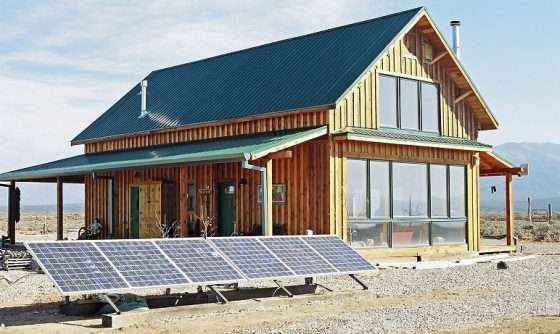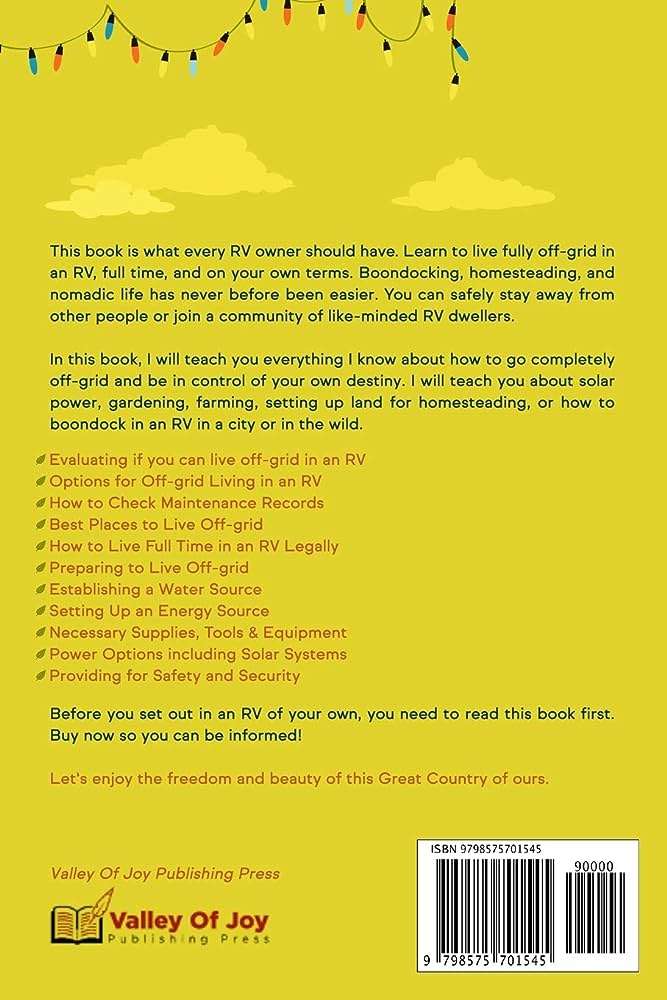Have you ever wondered what it would be like to completely disconnect from society and live on your own terms? Going off the grid offers a unique opportunity to escape the constraints of modern society and create a life that aligns with your own values and desires. However, it’s important to carefully plan your departure, ensuring loved ones are aware of your decision to avoid unnecessary worry. Living off the grid comes with its own set of challenges, from limited communication and resources to understanding local laws and regulations. But with the right preparation, finding a remote plot of land with access to water and fertile soil, and developing the necessary skills, you can create a sustainable and self-sufficient lifestyle. Just remember, personal safety and self-sufficiency should always be your top priorities when venturing off the grid.
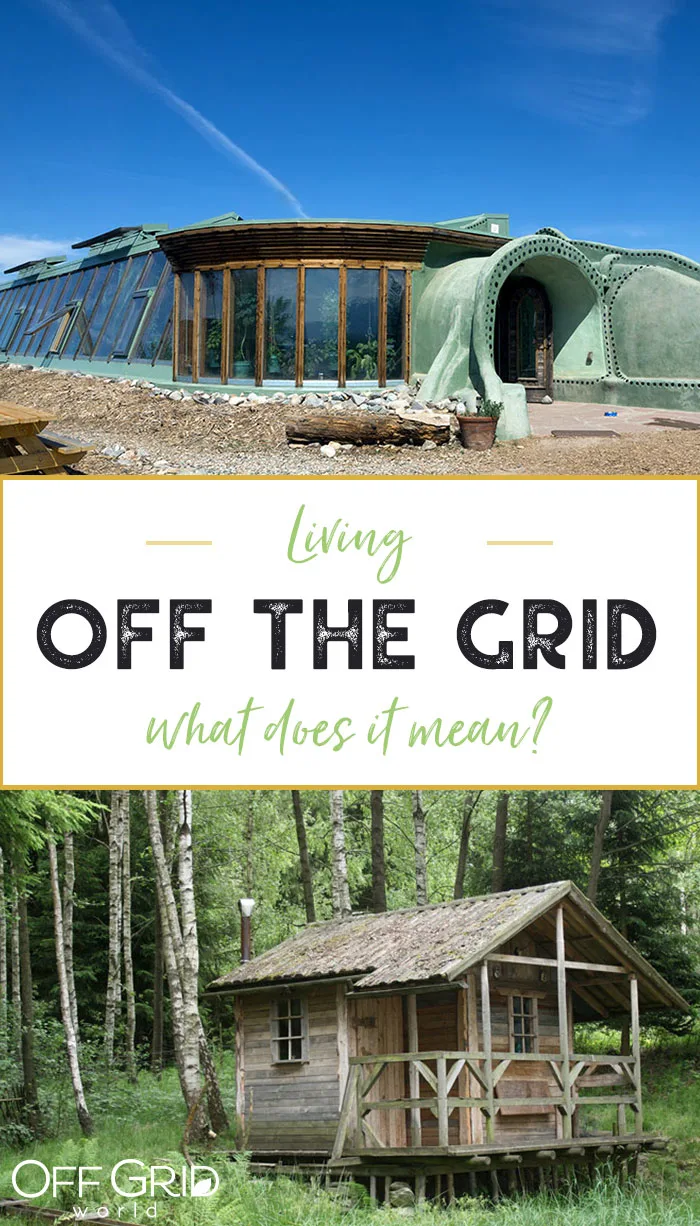
Reasons for Going off the Grid: Living on One’s Own Terms
Going off the grid and disconnecting from the modern society has become an increasingly attractive option for many individuals. There are various reasons why someone would choose to live on their own terms, away from the constraints of the mainstream lifestyle. Some individuals are seeking a simpler, more sustainable way of life, while others may be looking to escape the complexities and pressures of modern society. Regardless of the specific reasons, going off the grid allows individuals to create their own unique path and live according to their own values and priorities.
Importance of Informing Relatives and Friends
While the decision to go off the grid and live on one’s own terms is a personal choice, it is crucial to inform relatives and friends about this decision. Notifying loved ones about your plans can help prevent unnecessary worry and ensure that you are not reported as missing or in danger. It also allows your friends and family to support you in this new endeavor and maintain relationships and support systems even from a distance. In the event of an emergency or unexpected situation, having informed loved ones can provide crucial assistance and peace of mind.
Careful Planning for Going off the Grid
Going off the grid requires careful planning to ensure a smooth transition and successful long-term living. This planning includes several key aspects, such as choosing the right time to make the leap, selecting an ideal location for off-grid living, considering financial preparedness, and creating a comprehensive plan. Taking the time to thoroughly plan and prepare will greatly increase the chances of a successful off-grid lifestyle.
Choosing the right time to go off the grid is crucial. Factors to consider include personal circumstances, responsibilities, and the weather. It is important to assess whether it is the right time in your life to make such a significant change and whether your current responsibilities can be managed during the transition. Additionally, seasonal factors, such as extreme weather conditions, can greatly impact the ease of off-grid living and should be taken into consideration when planning the timing.
Selecting an ideal location for off-grid living involves assessing various factors. Access to water sources is essential for sustainable off-grid living, as it is necessary for drinking, cooking, and irrigation if you plan on growing your own food. Additionally, the fertility of the soil is important if you wish to engage in agriculture or gardening. Climate conditions should also be considered, as they can greatly impact the feasibility and comfort of off-grid living. Researching potential locations and visiting them in person can help inform the decision-making process.
Financial preparedness is another crucial aspect of planning for off-grid living. While living off the grid can often be more cost-effective in the long run, there are initial expenses involved in setting up an off-grid lifestyle, such as purchasing land and necessary equipment. It is important to carefully assess your financial situation and ensure that you have enough savings or a sustainable income source to support this lifestyle.
Creating a comprehensive plan is essential for a successful off-grid transition. This includes outlining how you will meet your basic needs, such as food, water, and shelter, as well as planning for energy generation and storage, waste management, and other essential aspects of daily life. Each person’s plan will be unique to their specific circumstances and goals, but having a well-thought-out plan in place will increase the likelihood of a smooth transition and successful off-grid living.
Compliance with Local Laws when Living off the Grid
Living off the grid does not exempt individuals from complying with local laws and regulations. While the desire to disconnect from mainstream society may include a desire for more freedom and autonomy, it is important to remember that living off the grid does not absolve individuals from their responsibility to adhere to the laws of the land. Failing to comply with local laws can result in legal trouble and may jeopardize the sustainability and longevity of your off-grid lifestyle.
Adhering to building codes is an important consideration when living off the grid. While off-grid living often involves constructing your own shelter or modifying existing structures, it is essential to ensure that these structures meet the safety and structural requirements set forth by local building codes. This not only ensures your safety but also helps maintain the integrity of the surrounding environment.
Understanding zoning and land use regulations is also crucial when living off the grid. Different regions have specific regulations regarding land use and zoning, which may impact the type of activities and structures that are permitted on your property. Familiarizing yourself with these regulations before making a purchase or beginning construction will help avoid potential legal conflicts and ensure compliance.
Complying with health and safety standards is paramount when living off the grid. Proper waste management, including sewage disposal and trash disposal, is essential to maintain clean and hygienic living conditions. Additionally, ensuring that your off-grid setup meets health and safety standards, such as having a reliable and safe water source, can help prevent potential health issues and ensure a sustainable living environment.
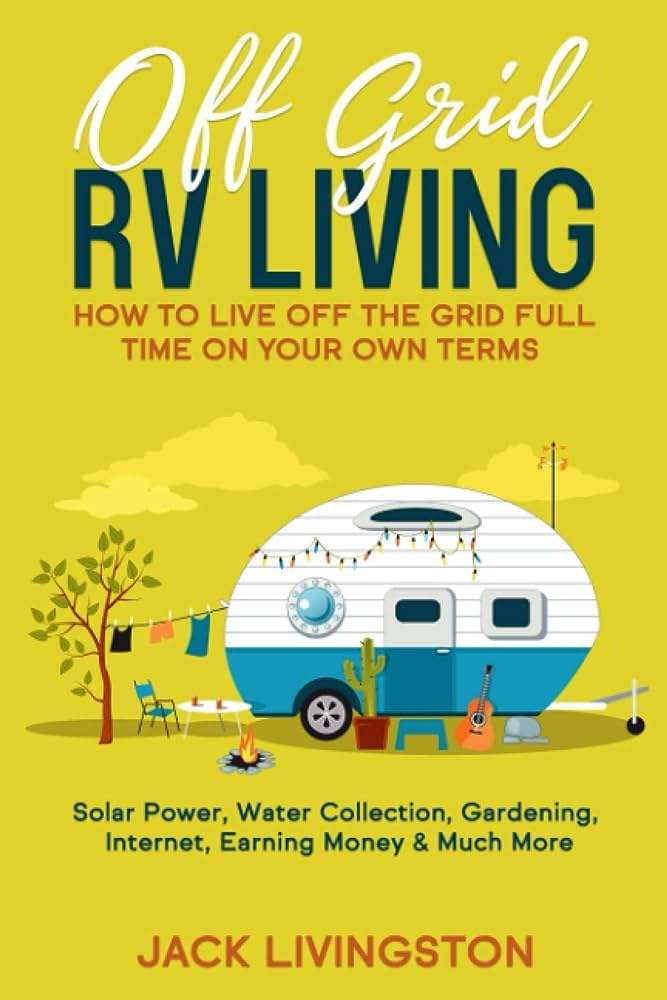
Challenges of Living off the Grid
While living off the grid can be a fulfilling and rewarding experience, it is not without its challenges. Understanding and preparing for these challenges is essential for a successful off-grid lifestyle. Some common challenges include limited communication and access to resources, dealing with isolation and loneliness, managing energy consumption and power generation, and navigating extreme weather conditions.
Living off the grid often means limited access to modern communication methods such as the internet and cell phone service. While this may be part of the appeal for some individuals, it can also present challenges in terms of staying connected with the outside world and accessing important information when needed. In these situations, it is important to have alternative communication methods in place, such as satellite phones or shortwave radios.
The isolation and loneliness that can come with living off the grid is another challenge to consider. Being physically distant from neighbors and larger communities may result in a lack of social interaction. It is important to proactively seek out social connections and cultivate a support network, even if it means traveling to nearby communities periodically. Engaging in local activities or joining community organizations can help alleviate feelings of isolation.
Managing energy consumption and power generation is an ongoing challenge when living off the grid. Depending on your energy needs and preferences, you may need to invest in alternative energy sources, such as solar panels or wind turbines. Balancing energy usage and ensuring a reliable power supply can be complex and requires careful planning and monitoring.
Lastly, navigating extreme weather conditions can pose a significant challenge for off-grid living. Depending on your location, you may experience severe weather such as storms, heavy snowfall, or extreme heat. Being prepared for these weather events and having contingency plans in place is essential. This can include having backup power sources, stocking up on food and resources in case of extended periods of inclement weather, and reinforcing your shelter to withstand extreme conditions.
Understanding Off-Grid Laws and Regulations
To ensure a successful and sustainable off-grid lifestyle, it is important to have a clear understanding of the laws and regulations that apply to living off the grid. These laws can vary between states and even within different municipalities, so thorough research is necessary.
Researching state and local regulations is the first step in understanding off-grid laws. Some states may have specific laws or regulations pertaining to off-grid living, while others may have more lenient or flexible regulations. It is important to be aware of any specific requirements or restrictions that may apply to your desired location.
Obtaining necessary permits and licenses is another important aspect of compliance with off-grid laws. Depending on your location and the activities you plan to engage in, you may need to obtain permits or licenses for building, water use, agriculture, or other relevant activities. Failing to obtain the necessary permits can result in legal consequences and potential challenges in the future.
Staying updated with changing policies is crucial when living off the grid. Laws and regulations pertaining to off-grid living may evolve over time as governments and communities adapt to changing circumstances and priorities. It is important to stay informed and aware of any changes that may affect your off-grid lifestyle to ensure ongoing compliance and avoid unnecessary legal trouble.
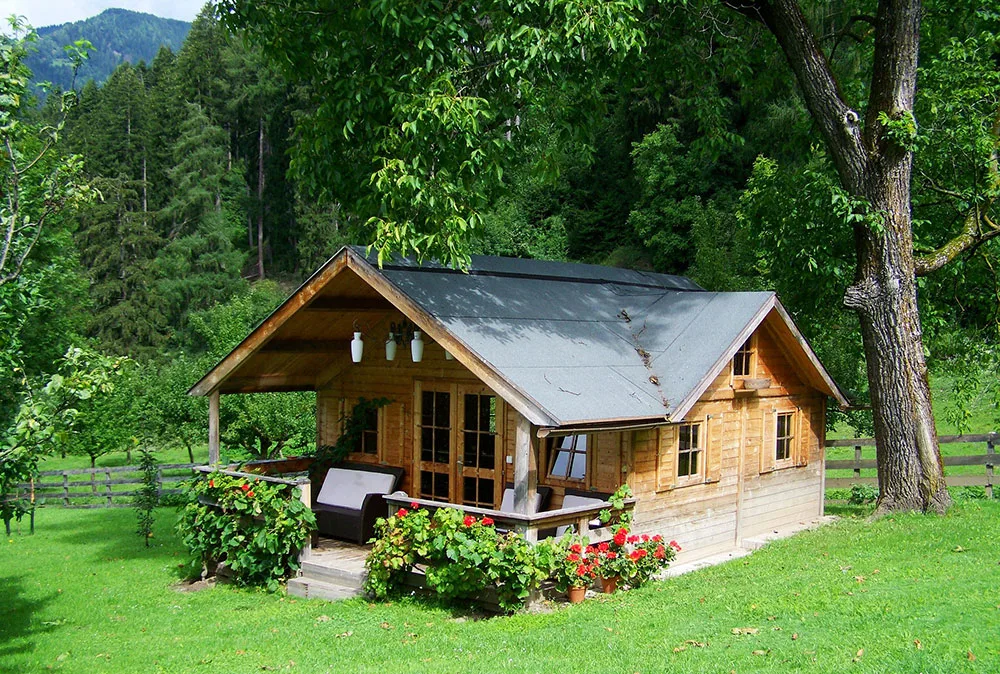
Finding a Suitable Remote Plot of Land
When going off the grid, finding a suitable remote plot of land is essential. This land will serve as the foundation for your off-grid lifestyle and should meet certain criteria for sustainable living.
Access to water sources is a top consideration when selecting remote land for off-grid living. Having a reliable and sustainable source of water is essential for day-to-day activities such as drinking, cooking, and bathing. Whether it be a nearby river or stream, a well, or a rainwater collection system, ensuring access to water is crucial for a successful off-grid lifestyle.
Fertile soil is another important factor to consider when choosing land for off-grid living. If you plan on growing your own food, having access to fertile soil will be necessary for successful agriculture or gardening. Conducting soil tests and researching the agricultural potential of the area can help inform your decision.
Climate conditions should also be taken into account when choosing remote land. Consider factors such as average temperature, precipitation patterns, and the severity of extreme weather events. Certain climates may be more suitable for off-grid living, while others may present greater challenges. Assessing your own comfort level and ability to adapt to climate conditions is important for long-term sustainability.
Additionally, other factors such as proximity to essential services, the availability of building materials, and the overall safety and security of the area should also be considered when searching for a suitable remote plot of land. Conducting thorough research and even visiting potential locations in person can help inform your decision and ensure a successful off-grid living experience.
Preparing for Off-Grid Living
Preparing for off-grid living involves acquiring the necessary skills and resources to become self-sufficient and sustainable. This process takes time and effort and should be approached with a proactive mindset.
Learning essential skills for self-sufficiency is a key aspect of preparing for off-grid living. This can include acquiring knowledge about gardening and agriculture, learning basic carpentry and construction skills, and understanding alternative energy generation and maintenance. The more self-sufficient you are, the less you will have to rely on external resources to meet your needs.
Securing reliable and sustainable food sources is another essential part of off-grid living preparation. Growing your own food through gardening or farming can provide a self-sustaining food source and reduce dependence on external food supplies. Additionally, learning how to preserve and store food can help ensure a steady supply throughout the year.
Ensuring adequate shelter and infrastructure is crucial for off-grid living. Investing in quality building materials and construction techniques can help create a durable and sustainable living space. Proper insulation, ventilation, and weatherproofing are important considerations when designing and building an off-grid shelter. Additionally, establishing alternative systems for water supply, waste disposal, and energy generation will contribute to long-term self-sufficiency.
Developing alternative energy sources is essential for off-grid living. Depending on your location and preferences, this can include installing solar panels, wind turbines, or hydroelectric systems to generate electricity. Understanding the energy requirements of your off-grid lifestyle and investing in reliable and sustainable energy sources will contribute to your overall self-sufficiency.
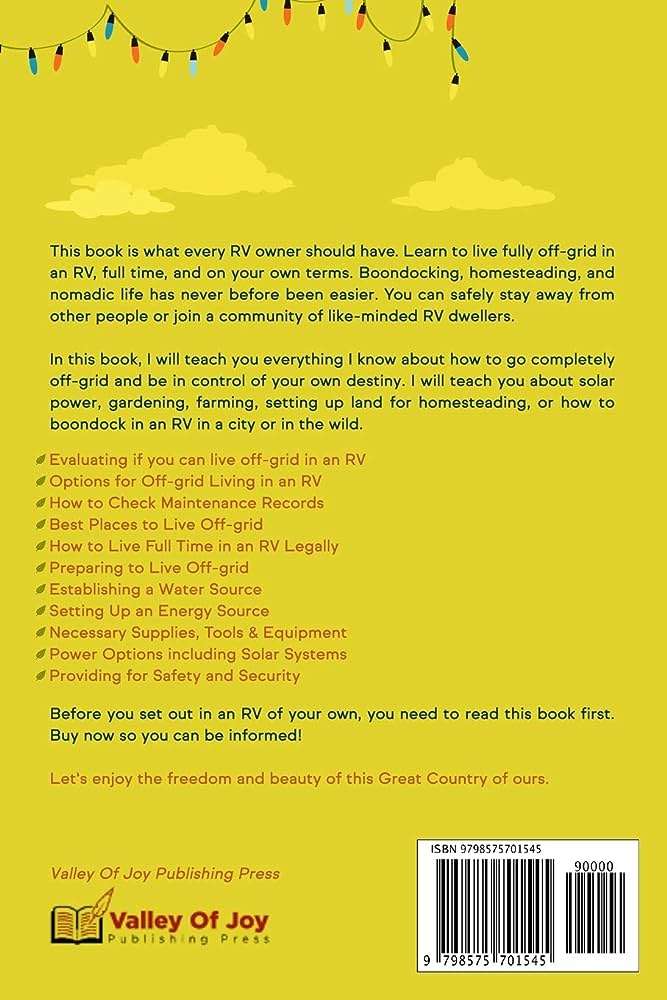
Timing Considerations for Going off the Grid
When deciding to go off the grid, timing is a crucial factor to consider. Both external factors, such as weather and seasonal conditions, as well as personal circumstances and responsibilities, should be evaluated to determine the best time for this significant transition.
Considering weather and seasonal factors is important when timing your off-grid living transition. Extreme weather conditions, such as winter snowstorms or summer heatwaves, can greatly impact the ease and comfort of off-grid living. It is important to assess whether you have the necessary resources and infrastructure to withstand such conditions and make any needed preparations in advance.
Assessing personal circumstances and responsibilities is another key consideration when determining the right time to go off the grid. Significant life changes, such as starting a family or transitioning careers, may impact your ability to successfully transition to an off-grid lifestyle. Evaluating your current responsibilities and commitments will help determine whether it is feasible to make this significant change at this particular moment in your life.
Understanding and balancing these timing considerations will contribute to a smoother off-grid living transition and increase the chances of a successful outcome.
Importance of Informing Loved Ones
When going off the grid, it is important to inform your loved ones about your decision. While your choice to disconnect from mainstream society and live on your own terms is personal, informing loved ones is crucial for safety reasons.
Informing loved ones about your decision to go off the grid helps avoid being reported as missing or in danger. This can cause unnecessary worry and concern for your friends and family. By letting them know about your plans in advance, you can help alleviate any potential distress and maintain open lines of communication.
Additionally, informing loved ones ensures that they can support you in this new endeavor. They can offer encouragement, advice, and assistance if needed. Having a network of support even from a distance can provide invaluable reassurance and comfort during times of challenge or uncertainty.
In the event of an emergency or unexpected situation, having informed loved ones can be essential. They will know where you are and how to reach you, increasing the likelihood of receiving assistance or support when needed. Keeping your loved ones updated on your location and contact information can give them peace of mind knowing that you are safe and well.
Maintaining open and transparent communication with your loved ones is of the utmost importance for the successful navigation of your off-grid lifestyle. By keeping them informed and involved in your journey, you can ensure their support and create a sense of peace and understanding among your relationships.
